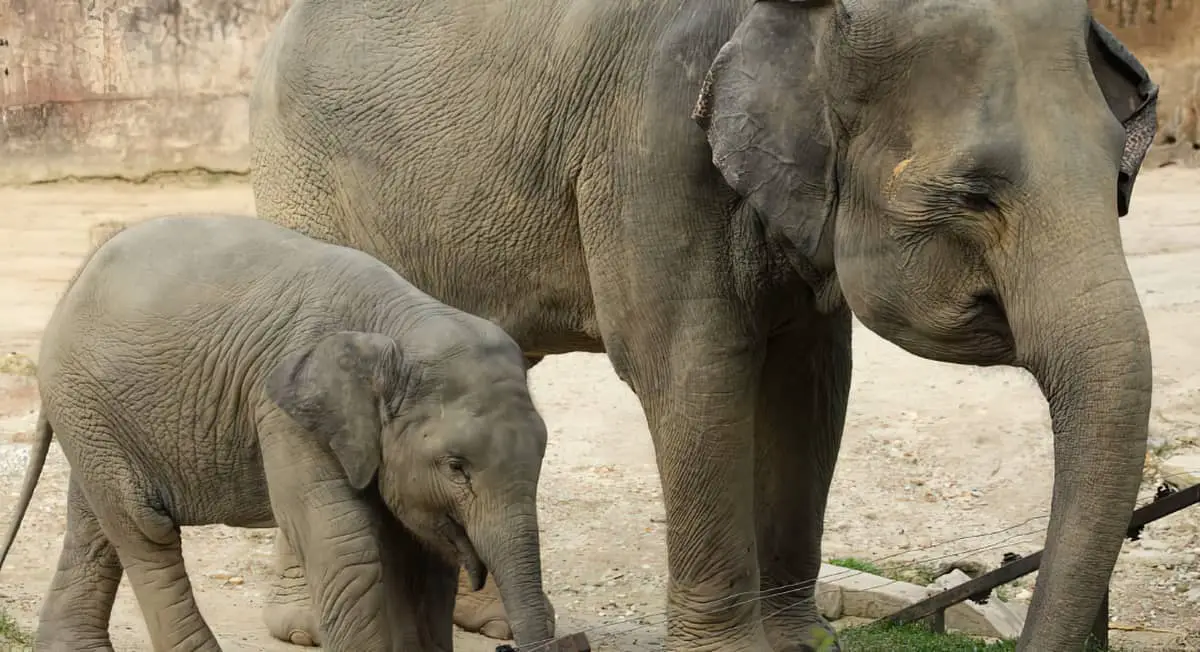News OnTheWight always welcomes a Letter to the Editor to share with our readers – unsurprisingly they don’t always reflect the views of this publication. If you have something you’d like to share, get in touch and of course, your considered comments are welcome below.
This from Maggie Nelmes, Ventnor. Ed
A recent report highlighted the Government’s possible intention of reforming parts of the Zoo Licensing Act 1981, to prohibit zoos from keeping elephants in captivity, due to wider animal welfare concerns regarding the species.
Currently, 49 elephants are kept captive in 11 UK zoos. Freedom for Animals, a non-governmental organisation dedicated to ending the suffering of captive animals, which campaigned for decades to eventually put an end to barbaric animal circuses in the UK, is calling on DEFRA to legislate for elephants now.
Those held in captivity would be released into the wild, where this is possible, under expert supervision, or transferred to sanctuaries run by the Global Sanctuary for Elephants (GSFE), where animal welfare, not profit, is paramount.
Cramped and limited space
In the wild, Asian elephants have a home range of over 800 square kilometres, and the larger African elephants up to 11,000 square kilometres.
Yet the median average amount of space provided for them in UK zoos and safari parks is a mere 0.008 square kilometres, ten thousand times less for Asian elephants and nearly 140 thousand times less for African elephants.
Impact of lack of space
No wonder they suffer greatly from serious physical problems when kept in small enclosures, especially foot and muscular-skeletal problems.
No wonder they suffer from debilitating mental illness, due to their unnatural surroundings, and lack of environmental and social stimulation. Symptoms of this can be seen in stereotypical behaviour, such as swaying from side to side and pacing up and down, over and over again.
Captive elephants experience significant suffering
Freedom for Animals’ investigations of captive animals have, over many years, revealed significant suffering caused by cramped conditions and lack of enrichment – purposeful activity giving meaning to their daily lives.
Humans should understand this need, which we share with many other species, so why don’t zoos, especially given all the animal welfare research that has been carried out in recent years, or is this simply not a priority?
Sustained mental torture
Elephants are highly intelligent and highly socialised mammals, living in matriarchal family groups in the wild, rather like dolphins.
Yet in zoos, they are usually isolated from their social groups, and of those few elephants that are living in natural groups, individuals are likely to be moved from one zoo or safari park to another for breeding purposes. Wrenching them from their social group causes them great distress, amounting to sustained mental torture.
Breeding for commercial purposes
Breeding is generally used by commercial zoos for marketing purposes. Baby animals attract more visitors, and thereby more income.
Yet most elephants in captivity die before the age of five, and keeping those that survive as they grow up may not be an option. With limited space and tight budgets, zoos cannot afford to feed animals that are surplus to requirements.
Killed if they can’t feed them
So, what do they do with them? Rather than taking steps to release them into the wild, they look for another zoo that wants them, and if they can’t find one, they kill them.
Freedom for Animals asks,
“If zoos or safari parks cannot provide elephants with the environment or space needed for suitable exploration and mental stimulation, or provide the means that allow them the necessary ability to choose solitude or build bonds through shared social experiences, why do they continue to house these incredible creatures?
“And why are they continuing to breed from them, when they have no intention of releasing the young into wild habitats?”
Most elephants kept in zoos do not nearly reach their natural lifespan, dying at a median average of 17 years old, as opposed to 40 years in the wild.
Ban commercial zoos and safari parks from keeping elephants
Freedom for Animals, together with its members and supporters, is calling on DEFRA to legislate to ban commercial zoos and safari parks from keeping elephants. Those in captivity would be transferred to sanctuaries to live out their days in peace, in the best conditions that can be provided to suit their individual needs, and in the company of other elephants, if that is what makes them contented.
As Freedom for Animals asks,
“Why are we, as a country, not working with charities who look after elephants in their wild environments, to further the conservation of the species in their natural habitats? This is the true nature of conservation, not keeping animals locked in enclosures to make ticket sales and profit from them.”
Many less-harmful ways to see elephants
I fully endorse these sentiments. Long gone are the days when the only way to see elephants without going on safari, was to visit a zoo. Nowadays, there are plenty of videos of elephants behaving naturally in the wild available on television and online platforms like YouTube. Besides, if we do visit zoos, we will learn nothing from the stereotypical behaviour that isolated and highly stressed elephants display, except what mental suffering looks like.
For all these reasons, please do not visit commercial zoos, dolphinariums and aquariums, but only support wildlife organisations and animal rescue sanctuaries that you can trust to put the welfare of the animals, not commercial interests, first.
Write a letter
To take part in Freedom for Animals’ letter-writing campaign to DEFRA to urge the Government to reform parts of the Zoo Licensing Act 1981 to prohibit the keeping of elephants in zoos, see the Website.
Image: © Freedom for Animals





